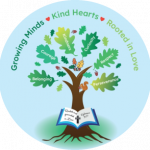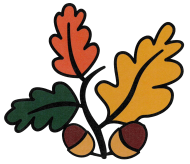“Growing Minds, Kind Hearts, Rooted in Love”

Our Curriculum
Subject Areas – PSHE/RSE Vision
Note: For 2024-25 we are currently on Year B

Intent
At Worlingham CEVC Primary, PSHE inc. RSHE is a crucial part of a child’s education. It allows children to develop an understanding of themselves as human beings, those around them and the diversity of the environment they live in. Our whole-school approach aims to support our pupils’ development to become well-rounded individuals who have the skills and resilience to manage the world around them in order to excel and achieve socially, emotionally, academically and economically. We know that in order for pupils to be successful with their learning, they at first need to feel safe and secure emotionally and feel a sense of belonging with their environment, peers and adults.
At Worlingham CEVC Primary, we use Jigsaw, the mindful approach to PSHE, as our chosen teaching and learning curriculum. The mapping document: Jigsaw 3-11 and statutory Relationships and Health Education, shows exactly how Jigsaw and therefore our school, meets the statutory Relationships and Health Education requirements. Jigsaw provides a comprehensive, carefully planned curriculum which brings consistency to the teaching, and progression of skills and knowledge, in this vital curriculum area. Our curriculum aims to give pupils opportunities to engage in conversations about life’s big questions, and relate this to their own practical experiences. Our six key school values (belonging, courage, curiosity, kindness, perseverance and respect) are embedded within our PSHE inc. RSHE curriculum.
Our PSHE inc. RSHE aims to promote children’s knowledge, self-esteem, emotional wellbeing and resilience, and to help them to form and maintain worthwhile and positive relationships. Children will be taught to have respect for themselves, and for others, within our local and wider communities.
We aim to develop key character skills, with the help of Jigsaw’s “Solve it Together” process, including decision making, informed risk taking, good communication and self-regulation strategies. Through our curriculum, we encourage the exploration of, and respect for, values held by different cultures and groups within out local and wider community, and promote the development of positive attitudes. We encourage honesty and respect in all relationships and nurture sensitivity to the feelings and needs of others.
We aim to enable children to develop a deepening knowledge of their health and wellbeing, including their mental and physical health. We aim to equip children and young people with information, skills and values to understand and to be able to cope with the physical and emotional changes that happen during puberty. The information provided will be relevant and appropriate to the age and maturity of pupils.
At Worlingham CEVC Primary, we aim to prepare pupils adequately for adult life: its decisions, responsibilities, experiences and opportunities, and to allow pupils to develop fully as emotionally mature human beings.
Implementation
Jigsaw covers all areas of PSHE for the primary phase incorporating British Values and SMSC (Spiritual, moral, social and cultural) development and including the statutory Relationships, Sex and Health Education.
The Jigsaw curriculum is split into 6 key topics (Being Me in My World, Dreams and Goals, Celebrating Difference, Healthy Me, Relationships and Changing Me). These themes have equal weighting and importance within teaching, and topics are taught on a rolling, spiral basis. Topics are revisited across year groups, and understanding is deepened. This allows for progression and retention of key skills and knowledge, and also the introduction of some concepts at an age-appropriate point. This progression is detailed in the PSHE inc. RSHE curriculum map.
Some PSHE topics are taught hand-in-hand with other subjects, especially Computing and Science, for example the teaching of online safety within Computing lessons and healthy eating within Science etc. Our curriculum supports the development of pupils English skills, for example, through introducing and discussing new vocabulary and their meanings, building good social communication skills, and their Maths skills, for example, through calculating costings within some units of work.
The PSHE inc. RSHE Subject Leaders have used Jigsaw to develop long and medium-term planning used by the whole school, ensuring progression through the spiral curriculum.
Each half term, the whole school teaches the same unit of work. This is introduced by a whole school assembly to launch the new topic. Teachers use the Jigsaw website to access short term planning, resources and key vocabulary. A puzzle knowledge organiser is used at the beginning of each new unit of work.
At Worlingham CEVC Primary we allocate one hour to PSHE each week in order to teach the PSHE knowledge and skills in a developmental and age-appropriate way. PSHE inc. RSHE is taught by class teachers in EYFS – Year 6, in discrete year group specific lessons. A taught session may look very different in one-year group to the next – class teachers have discretion to deliver teaching that suits the individual needs of their class, whilst ensuring that all curriculum content is covered effectively. Jigsaw lessons often begin with the Jigsaw Charter and includes the use of the Jigsaw Chime and Calm Me exercises which help pupils relax their bodies and calm their minds, reaching an optimum state for learning. The aim is to bring pupil’s awareness/attention to the present moment and in so doing let go of other thoughts that might be scurrying around the mind which distract from focusing on the learning of the lesson. The Connect Us section of the lesson aims to develop pupils’ social skills to better enable them to participate in collaborative learning. In EYFS, a whole class journal is used to capture the children’s learning on each theme. From Year 1, each pupil has their own book to show their learning journey. Jigsaw lessons incorporate range of learning opportunities, for example, paired or small group tasks, drama, individual tasks, research, drawing and discussions etc. Throughout Jigsaw, pupils are encouraged to reflect on their learning experiences and their progress. By reflecting, pupils can process and evaluate what they have learnt, which enables them to consolidate and apply their learning.
Impact
The impact of a good PSHE education cannot be understated . Quite simply, it forms the preparation for adult life, enabling a pupil to understand and face the challenges, complexities and questions that arise in a diverse world. The impact of our PSHE inc. RSHE curriculum can be measured in a variety of ways. At Worlingham CEVC Primary, we recognise and celebrate the importance of pupil voice and use this alongside the end of unit outcomes to assess pupil progress.
Subject leaders carry out pupil perception work, individually or with Governors, to gather pupil views on their learning. Book looks, by subject leader, ensures coverage of the Jigsaw Scheme of work across all Key-stages. Lesson observations take place to ensure good quality teaching and learning is taking place, and key vocabulary is introduced, modelled and explained at age-appropriate times. Termly meetings between subject leaders and their Governor partner take place to monitor the impact of our curriculum and inform the Governors of any forthcoming changes.
Assessment is essential to the effective teaching of PSHE. Each lesson will have an identified learning objective, linked to the unit of work, and the lesson success criteria will be specific to PSHE (coloured in purple on the mark sticker) and emotional literacy and social skills development (coloured green on the mark sticker). The pupils are encouraged to self-assess against the success criteria at the end of the lesson, and the teacher will also assess against the criteria as part of their marking. Whole School tracking grids are used to assess where children are working within the PSHE inc. RSHE curriculum and data is scrutinised by subject leaders.
By the time our pupils leave our school they are:
• are able to approach a range of real-life situations, applying their skills, knowledge and understanding to help navigate themselves through modern life. Examples of this have been seen through the way our pupils conduct themselves both inside the school environment and when out on visits or tournaments.
• are on their way to becoming healthy, open minded, respectful, socially and morally responsible, active members of society
• appreciate difference and diversity
• able to understand and manage their emotions
• able to look after their mental health and well-being
• able to develop positive, healthy relationships with their peers both now and in the future
• respectful of themselves and others
• confident and have positive self-image and self-esteem.

